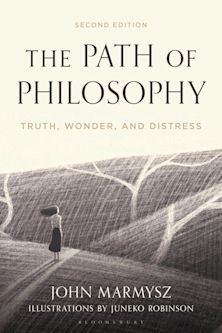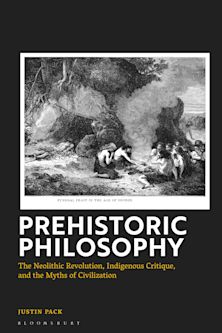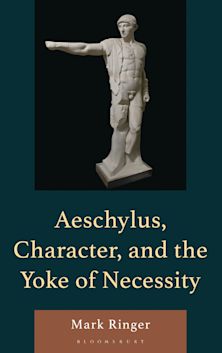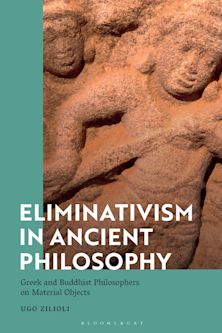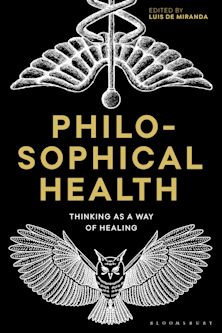- Home
- ACADEMIC
- Philosophy
- Ancient Philosophy
- Plato's Socrates as Narrator
This product is usually dispatched within 1 week
- Delivery and returns info
-
Free US delivery on orders $35 or over
You must sign in to add this item to your wishlist. Please sign in or create an account
Description
This book explores Socrates’ role as narrator of the Lysis, Charmides, Protagoras, Euthydemus, and Republic. New insights about each dialogue emerge through careful attention to Socrates’ narrative commentary. These insights include a re-reading of the aporetic ending of the Lysis, a view of philosophy as a means of overcoming tyranny in the Charmides, a reconsideration of virtue in the Protagoras, an enhanced understanding of Crito in the Euthydemus, and an uncovering of two models of virtue cultivation (self-mastery and harmony) in the Republic. This book presents Socrates’ narrative commentary as a mechanism that illustrates how the emotions shape Socrates’ self-understanding, his philosophical exchanges with others, and his view of the Good. As a result, this book challenges the dominant interpretation of Socrates as an intellectualist. It offers a holistic vision of the practice of philosophy that we would do well to embrace in our contemporary world.
Table of Contents
Chapter One: The Lysis: Learning to Listen to Socrates
Chapter Two: Chastening Charmides
Chapter Three: Performing Philosophy in the Protagoras
Chapter Four: Evaluating Eristic in the Euthydemus
Chapter Five: Self-Mastery and Harmony in Plato’s Republic
Chapter Six: Musing on the Republic: Its Homeric, Socratic, and Platonic Narratives
Conclusion: Composing a Vision of Philosophy from Plato’s Socrates as Narrator
Works Cited
Index
Product details
| Published | Jun 07 2013 |
|---|---|
| Format | Hardback |
| Edition | 1st |
| Extent | 232 |
| ISBN | 9780739183304 |
| Imprint | Lexington Books |
| Dimensions | 9 x 6 inches |
| Publisher | Bloomsbury Publishing |
About the contributors
Reviews
-
In this original work, Schultz draws our attention to the dialogues in which Plato has Socrates serve as narrator, and she opens a new window onto his role and function in the dialogues. Schultz provides rich interpretations of the individual dialogues she examines, while at the same time revealing a powerful lens through which to view Plato’s project and his use of Socratic narrative to further particular philosophical ends. In the process, she offers new insights that enhance scholars’ understanding of Socratic intellectualism, the role of the emotions in philosophical endeavors, various models of virtue portrayed in the dialogues, and Socrates’ relation to Homeric and other foundational narratives in Greek culture. In the end, Schultz offers a provocative and persuasive account of how Socrates as narrator of certain Platonic dialogues entices and exhorts his auditors—and Plato’s readers—to good philosophical practices.
Jill Gordon, Colby College
-
In Plato’s Socrates as Narrator, Dr Schultz provides an invaluable entry into reflections on the interrelations between the practice of philosophy, on the one hand, and its transmission, on the other, arguing in effect that the retelling of Socrates’ philosophical encounters as we find them in the Platonic corpus belongs to the work of philosophy itself. While Plato scholarship in recent years has become increasingly attuned to the ways in which the literary and dramatic aspects of the dialogues operate as integral to their philosophical content, Prof. Schultz takes such scholarship a step further to demonstrate how the status of particular dialogues as narrated contributes as well to a fuller understanding of Plato’s conception of philosophy. From the vantage point achieved through mediation on particular dialogues in their status as narrated encounters Prof. Schultz brings to light the character of philosophy not simply as an intellectual pursuit composed of explicit propositions, but also as a basic human comportment involving the motives, affects, and social position of specific character types. Both accessibly written and rigorously developed, Prof. Schultz’ investigations into the narrative and literary aspects of the Platonic corpus speak to the interests of advanced Plato scholars and beginning students alike.
Ryan Drake, Fairfield University












